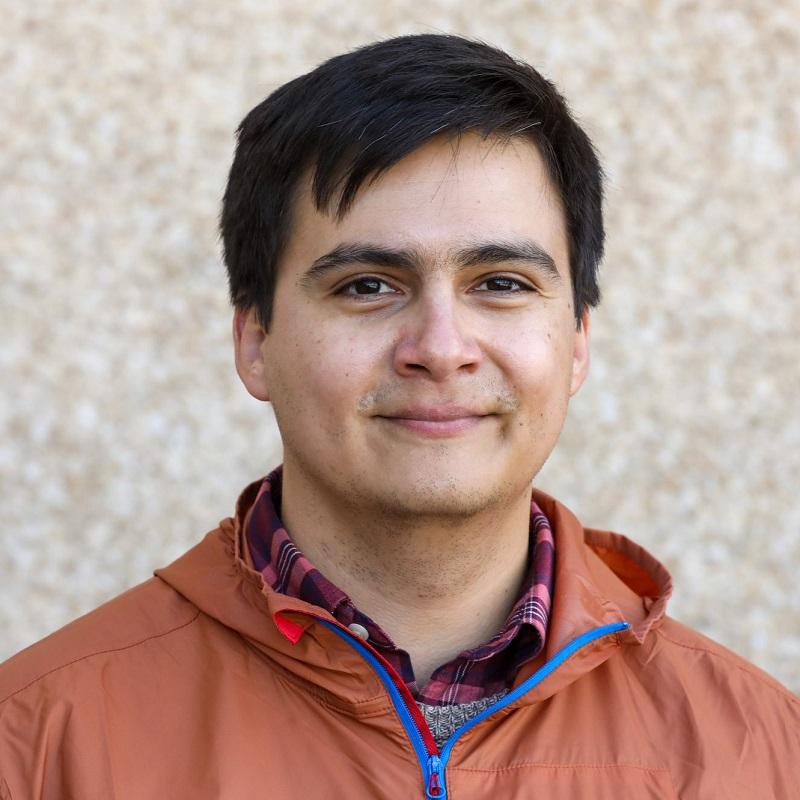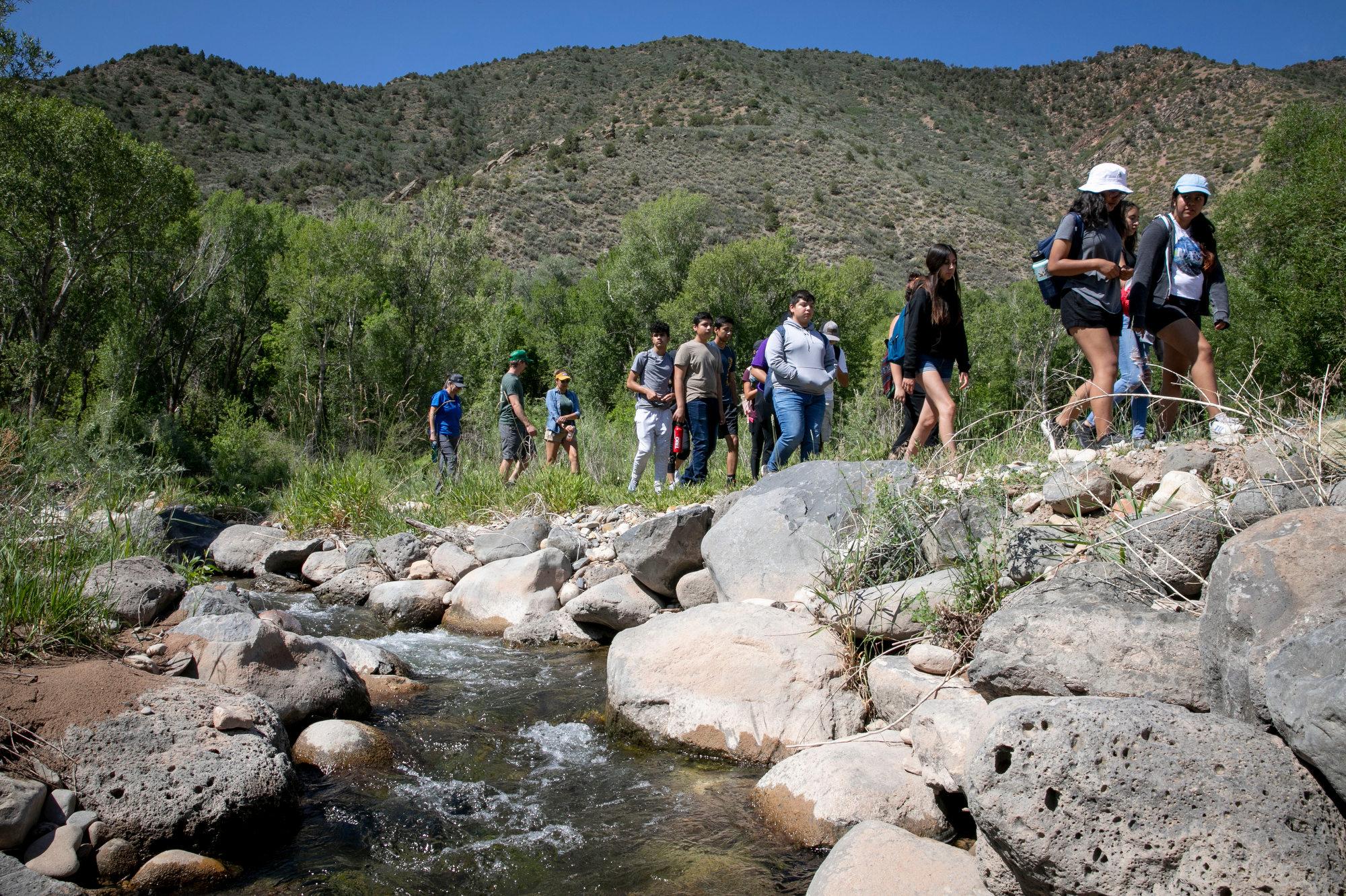
Most people who visit Harvey Gap State Park, an idyllic reservoir near Rifle on the Western Slope, are there to fish for bass or paddle in the aquamarine water.
For a group of area high school students, it was the perfect place to learn about the species of fish that live in Colorado and the humans in charge of their habitat.
“My parents don’t really take me out that much, so this is really fun for me,” said Rebeca Bacon, a student at Coal Ridge High School in nearby New Castle. “This is a really beautiful place.”
The students were there as part of Upward Bound, a federal program that prepares low-income and first-generation college students for life after graduation. The program takes them to different natural landmarks during the summer and introduces them to jobs in wildlife and conservation.
Nearly all of the students that participate in the program hosted by Colorado Mountain College are Latino. Organizers hope the experience inspires them to pursue careers in natural resources, government agencies and the wildlife sciences — areas where experts say they are historically underrepresented.
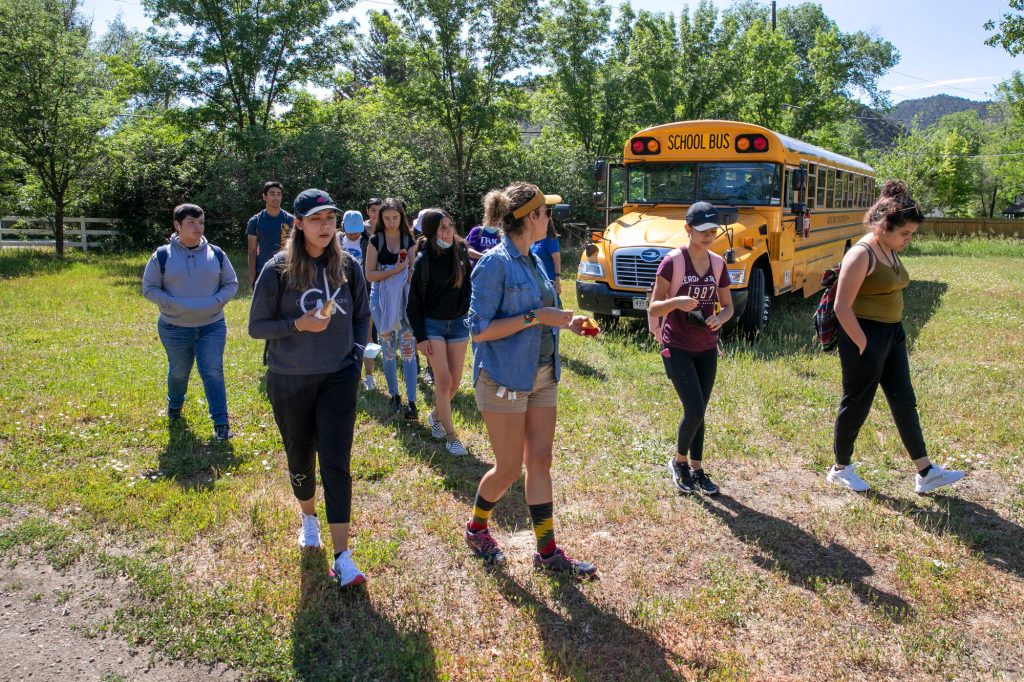
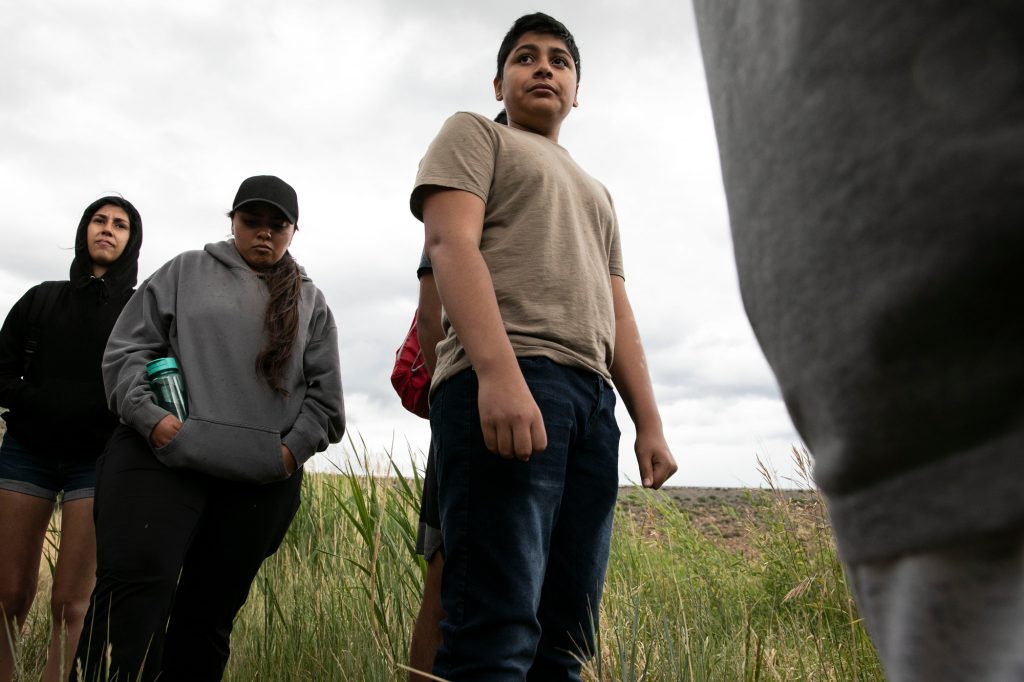
More than half of all Latinos living in Colorado are classified as being “nature deprived,” meaning they have poor access to forests, streams, wetlands and other natural places, according to a 2020 report by the Hispanic Access Foundation and Center for American Progress, a progressive Washington, D.C.-based think tank. That disparity is greater for all people of color, according to the report, keeping them from outdoor recreation and its related health benefits.
Nature can seem inaccessible even for those surrounded by it, said Beatriz Soto, who helped organize the Upward Bound program with conservation nonprofit Wilderness Workshop. People are subject to racial profiling, she said, or are unfamiliar with online systems to reserve campsites and passes to national parks.
Experiences like Upward Bound, she said, can also show high schoolers there are opportunities to work in nature — and that those jobs can and should be filled by people who look like them.
“These lived experiences bring great value to so many different industries and professions,” she said. “They’re not a downfall, but they’re actually something else that you bring to your professional life.”
The stop at Harvey Gap was part of a guided tour by Brian Gray, a district wildlife manager with Colorado Parks and Wildlife. The students had hiked through the burn scar of last year’s Grizzly Creek fire the previous week.
Outfitted in his tan officer shirt, blue jeans and sports sunglasses, Gray shared an entire syllabus worth of information about the ecosystem, quizzing the students about fish species and the surrounding vegetation.
The students — who would otherwise be lounging on summer break like many of their peers — responded with blank stares.
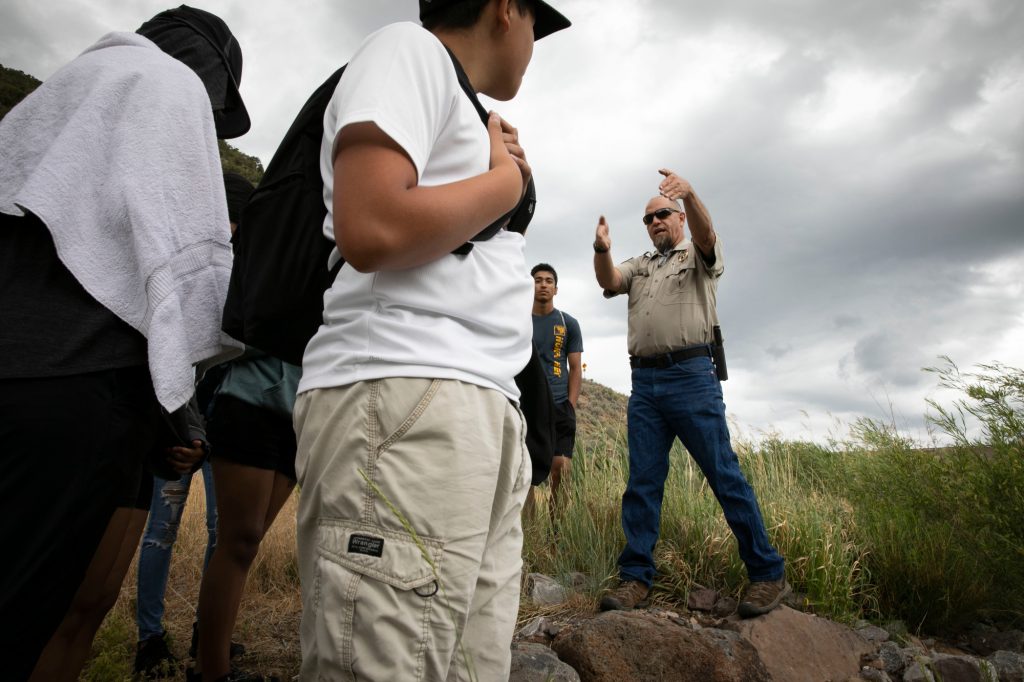
That didn’t mean they weren’t listening. Michelle Santillan, an incoming sophomore at Coal Ridge High School, said she has always been interested in science and wildlife. She wants to become a doctor and said participating in a program like this could be attractive to potential colleges.
The program also helped her look at natural disasters like wildfires in a different light, including one that burned near her home a few years earlier.
“It just made me think that fires happen all the time,” said Santillan, sporting a NASA T-shirt. “There’s always people that will be there to stop the fires and help us.”
Michelle Grindstaff, another Coal Ridge High School student, said she was inspired by hearing Soto talk about her work connecting Latinos with the outdoors. She said she would be interested in working in the tourism and recreation industry.
“It’s a career path I never thought to go into, but being able to talk with [Soto] and about her career kind of opened that up for me,” Grindstaff said.
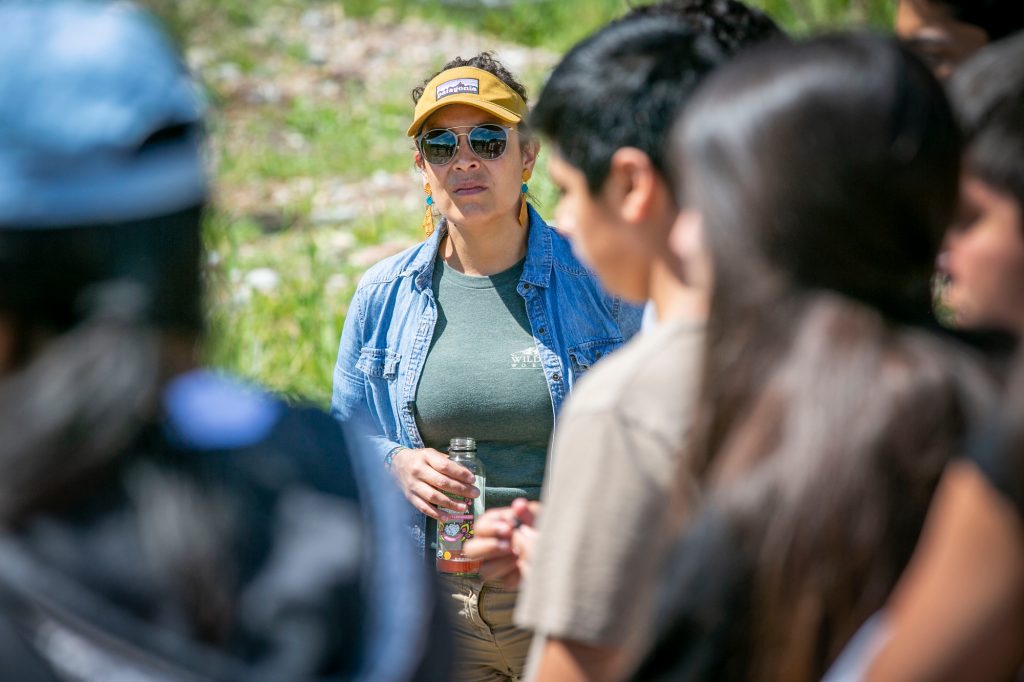
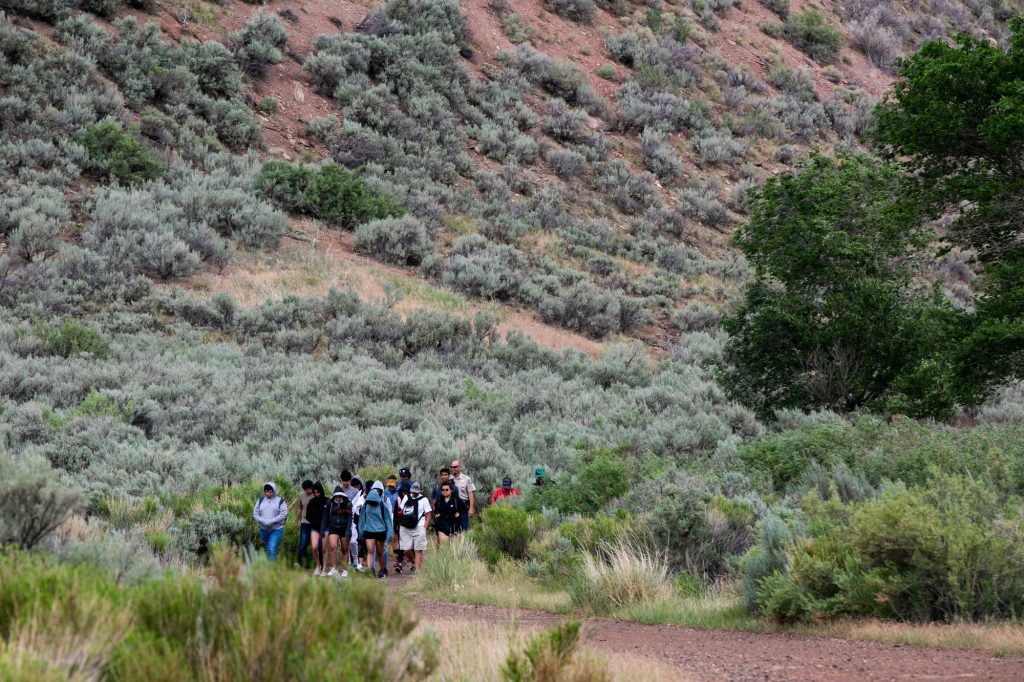
Like many of his colleagues, Gray grew up fishing, camping and hiking with his family. He said Latinos and people of color might not be getting the same opportunities.
“Maybe they just didn’t grow up around it,” he said. “I think that’s probably a big reason why we don’t get more [of] other ethnic groups — that they just don’t have that experience.”
That disparity can be reversed by addressing the larger problems keeping many people and families of color from enjoying the outdoors, Soto said. Other Latinos agree: The latest State of the Rockies poll conducted by Colorado College showed 86 percent of Latinos supported increasing funding to improve access to the outdoors compared with 69 percent of white respondents.
“This is one of the reasons why we are constantly advocating for equitable access to the outdoors,” Soto said. “That is the first place where you really feel a sense of belonging in our public lands.”
- Mt. Evans Highway Has Hurt The Delicate Tundra Around It For Decades. A Study Suggests Both Can Be Fixed
- Colorado’s Monsoon Season Is Struggling To Bring Relief To Rivers, Ranchers And Wildfires As The Climate Warms
- Wildfires Are Ravaging The West. Research Shows The People In Their Paths Vastly Underestimate The Risk
